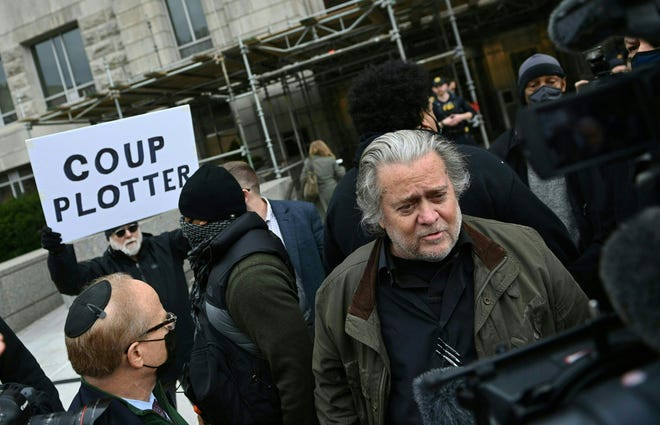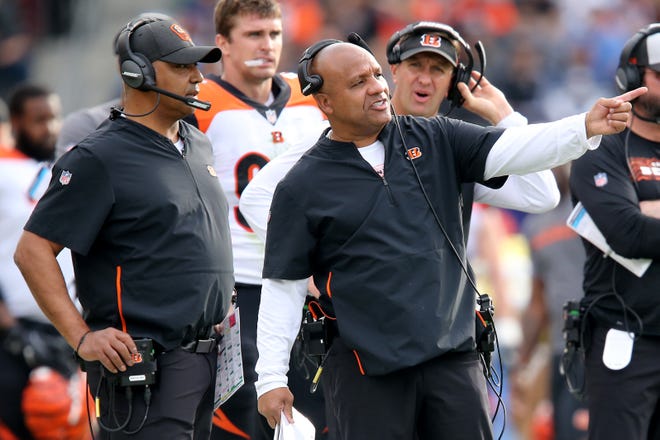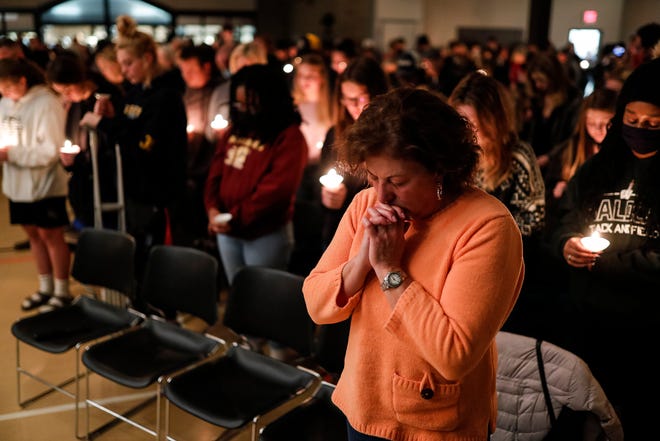
WASHINGTON – Steve Bannon, former President Donald Trump’s political strategist, surrendered to federal authorities Monday after his indictment on contempt charges for defying a House subpoena seeking documents and testimony as part of an escalating congressional inquiry into the Jan. 6 attack on the Capitol.
A few hours later, the flamboyant Trump stalwart made his first appearance in court where he is charged with two related criminal misdemeanor counts for refusing a deposition and documents demanded by the House Select Committee. Each charge carries a minimum of 30 days and a maximum of one year in jail, as well as a fine of $100 to $1,000.
Prosecutors made no request that Bannon be detained pending trial, and U.S. Magistrate Robin Meriweather set personal recognizance release conditions that required the surrender of Bannon's passport and weekly reporting to court authorities.
More:What doesn't Trump want House investigators to see in Jan. 6 documents?

Bannon, who conferred briefly with attorneys at the defense table, acknowledged that he understood the conditions and would abide by them.
Meriweather set arraignment for Thursday before U.S. District Judge Carl Nichols, who was appointed to the bench in 2019 by Trump.
The former White House adviser started the day in Bannon style, livestreaming his arrival at the FBI's Washington Field Office for his podcast “War Room” on Gettr, a social media service founded by Jason Miller, a former Trump aide who was also subpoenaed.

“We’re taking down the Biden regime,” Bannon said. “I want you guys to stay focused, stay on message. Remember, signal, not noise. This is all noise, that’s signal.”
Attorney General Merrick Garland's decision to pursue the Bannon case represents a serious escalation of the House panel's investigation and an important test for the Biden Justice Department and an attorney general who has vowed to separate politics from a department roiled by the repeated interventions of Trump.
AG:Merrick Garland vows to apply 'facts and the law' to Steve Bannon contempt case
Thompson, Cheney warn others
In a joint statement issued shortly after the Bannon charges were announced Friday, committee Chairman Bennie Thompson, D-Miss., and Vice Chairwoman Liz Cheney, R-Wyo., signaled that other witnesses, including former Trump chief of staff Mark Meadows, risk the same fate for defying committee subpoenas.
Eventful week in the Jan. 6 probe:Bannon was indicted. Meadows was a no-show, more subpoenas
Hours before the Bannon charges were disclosed, Meadows failed to show up for a deposition Friday.
"Steve Bannon’s indictment should send a clear message to anyone who thinks they can ignore the Select Committee or try to stonewall our investigation: no one is above the law. We will not hesitate to use the tools at our disposal to get the information we need," the lawmakers said.
More:Mark Meadows, former Trump chief of staff, defies House subpoena in January 6 probe
Strategy:Trump 'doesn't have a legal leg to stand on,' former deputy AG says. Is he running out the clock?
"While we’re determined to get all the information we’re seeking, Mr. Meadows, Mr. Bannon, and others who go down this path won’t prevail in stopping the Select Committee’s effort getting answers for the American people about January 6th."
Criminal contempt prosecutions are rare, and typically a settlement is negotiated to avoid them, according to a nonpartisan Congressional Research Service report. Litigation could take months or years.
Bannon, who didn’t work for the executive branch at the time, was in contact with Trump in the days leading up to Jan. 6. Bannon’s lawyers told the committee in a letter Oct. 7 that Trump instructed him not to cooperate because the former president would fight disclosure under executive privilege – despite the fact that Bannon was not working for the government.
Follow Washington reporters Kevin Johnson and Bart Jansen on Twitter @bykevinj and @ganjansen and subscribe to access all of their stories for just $1 a week.








